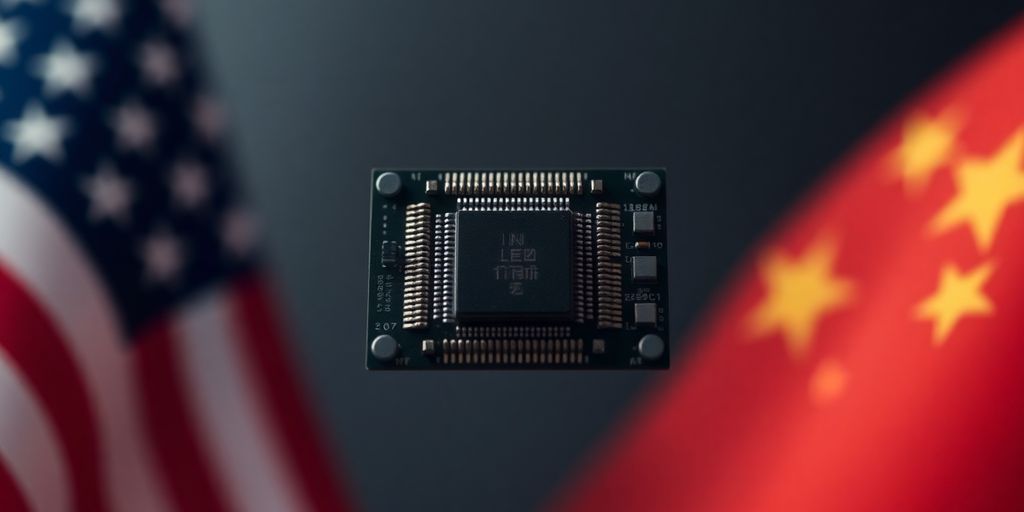U.S. Escalates Tech Export Restrictions on China Amidst Trade Tensions and Military Concerns
The United States has significantly tightened its restrictions on technology exports to China, specifically targeting critical sectors such as semiconductors and jet engines. This move intensifies the ongoing trade conflict, coming amidst accusations of illegal military technology exports and China’s own limitations on critical mineral shipments.
Key Takeaways
- The U.S. has suspended sales of key technologies, including those for jet engines, semiconductors, and certain chemicals, to China.
- This action is a direct response to China’s restrictions on critical mineral exports to the U.S., threatening American supply chains.
- The new export controls are pushing the world’s largest economies closer to a "supply chain warfare."
- Two foreign nationals have been indicted for allegedly attempting to export U.S. military technology, including missiles and radar, to China.
- The indictments also include charges of stalking and harassing a Chinese dissident in the U.S.
Escalating Trade Conflict
The Trump administration’s decision to halt certain technology sales to China marks a significant escalation in the economic rivalry between the two nations. This measure is a direct counter to Beijing’s recent restrictions on critical mineral exports, which have raised concerns about the stability of U.S. company supply chains. The move suggests a deepening of the trade conflict, potentially leading to a "supply chain warfare" where both countries leverage control over essential economic components.
Impact on Key Industries
The new export limits are expected to have broad implications for various industries that rely on foreign technologies. Manufacturers of airplanes, robots, cars, and semiconductors could face significant disruptions. This development also complicates ongoing efforts to resolve the broader trade dispute, including the 90-day tariff reduction agreement reached in May, which was intended to de-escalate tensions.
Allegations of Military Technology Export
Further exacerbating U.S.-China relations are recent indictments against two foreign nationals, Cui Guanghai and John Miller. They are accused of conspiring to export sensitive U.S. military technology, including missiles, air defense radar, drones, and cryptographic devices, to China. Prosecutors allege the men used encrypted communications and discussed methods of concealing the exports, even attempting to reverse engineer Western technology.
Harassment of Dissidents
In addition to the military technology charges, Cui and Miller are also accused of orchestrating the harassment and surveillance of a Chinese dissident in the U.S. This included attempts to track the victim, damage property, and destroy artwork critical of the Chinese government. The FBI, working with informants, uncovered these alleged activities. Both individuals are currently in Serbia, and the U.S. is seeking their extradition.
Sources
- U.S. Pauses Exports of Airplane and Semiconductor Technology to China, The New York Times.
- Prosecutors accuse men of exporting U.S. military technology to China, Milwaukee Journal Sentinel.

Founder Dinis Guarda
IntelligentHQ Your New Business Network.
IntelligentHQ is a Business network and an expert source for finance, capital markets and intelligence for thousands of global business professionals, startups, and companies.
We exist at the point of intersection between technology, social media, finance and innovation.
IntelligentHQ leverages innovation and scale of social digital technology, analytics, news, and distribution to create an unparalleled, full digital medium and social business networks spectrum.
IntelligentHQ is working hard, to become a trusted, and indispensable source of business news and analytics, within financial services and its associated supply chains and ecosystems











